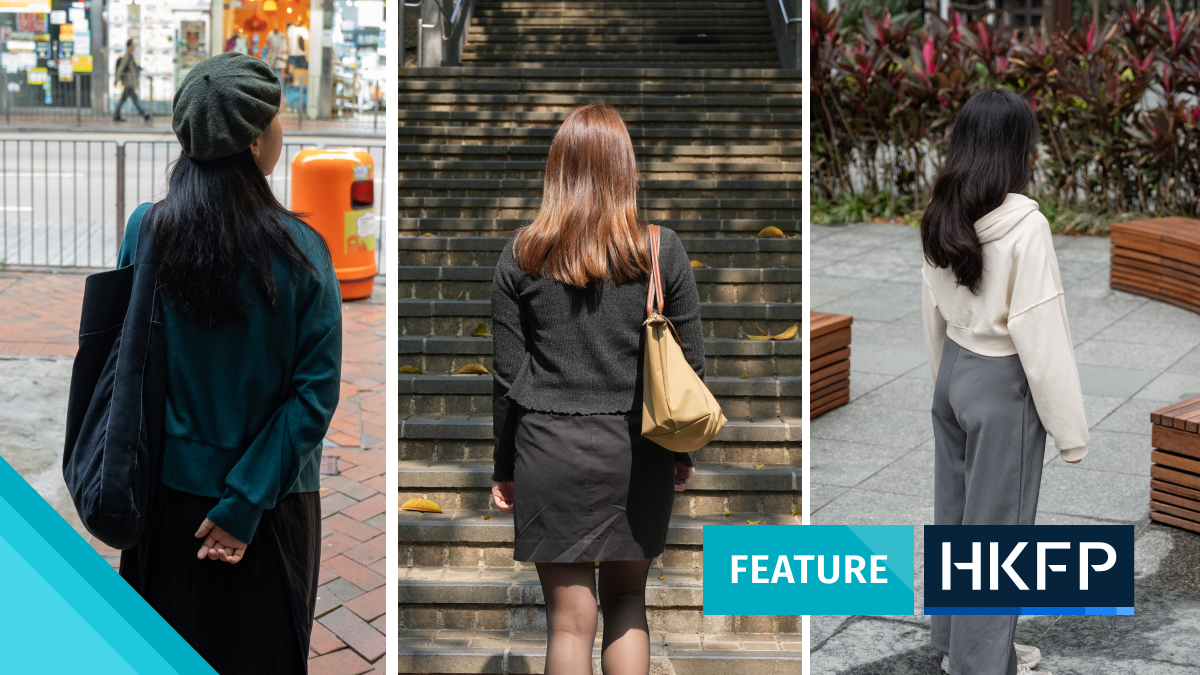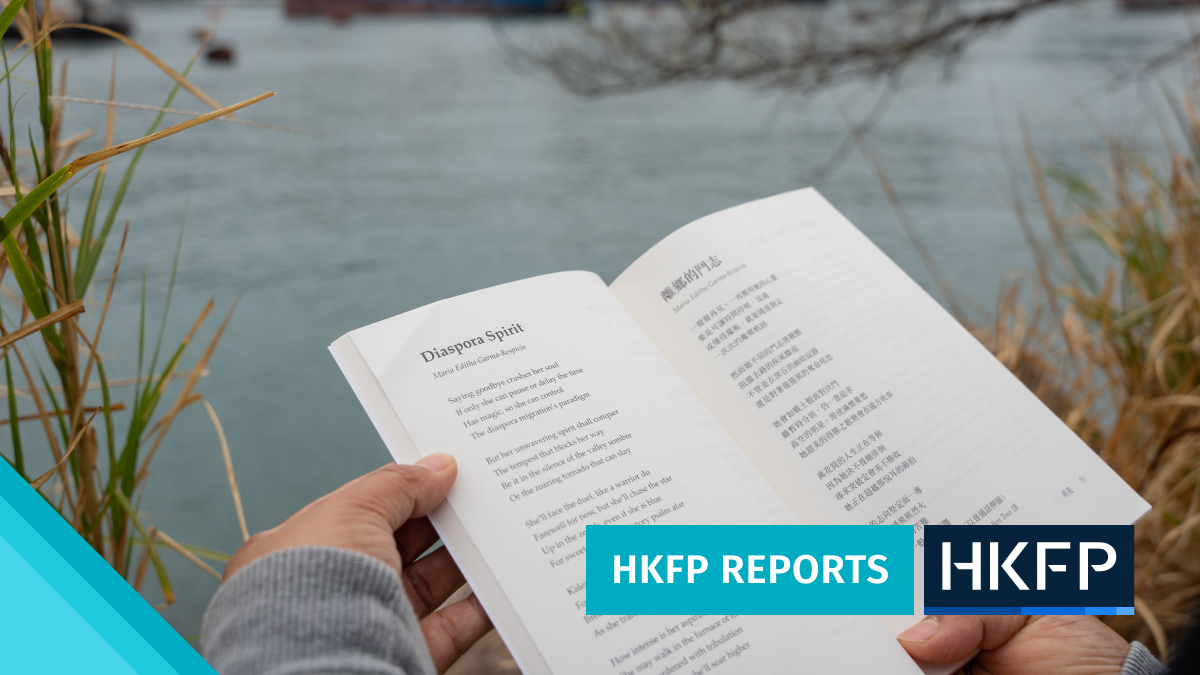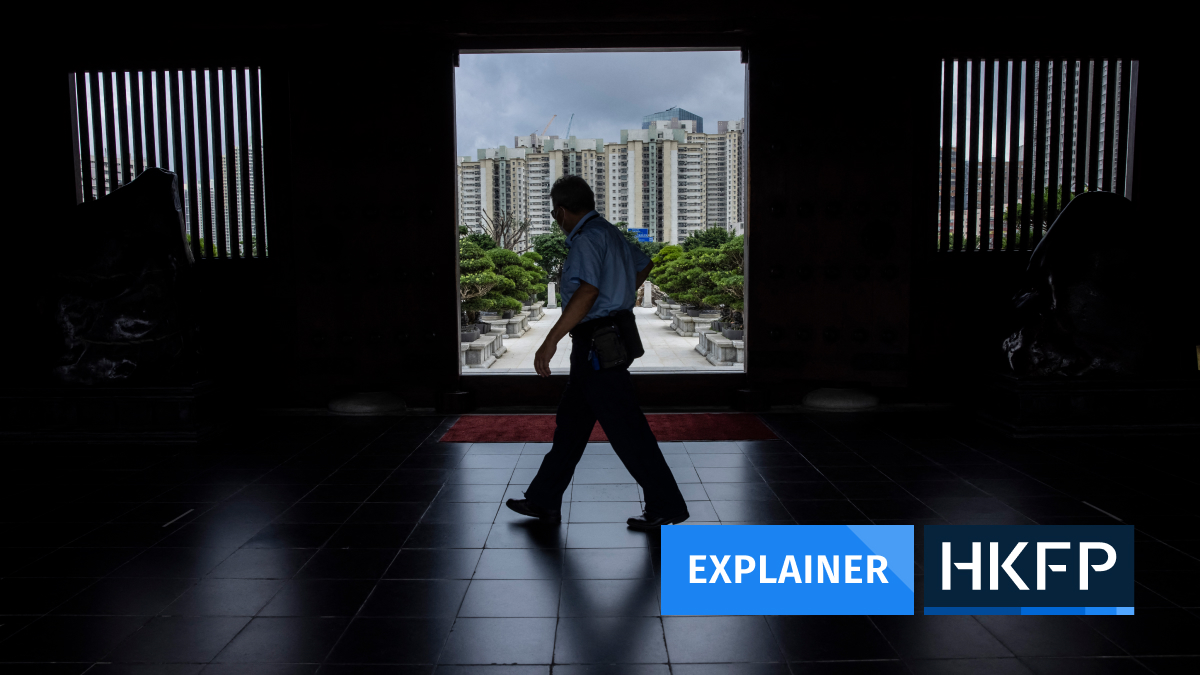In May 2023, signs indicating the location of the nearest air defence shelter popped up across Taiwan. These red arrows, many pointing to a basement or a building’s parking lot, are designed to let people know where to seek refuge in case of an air raid.
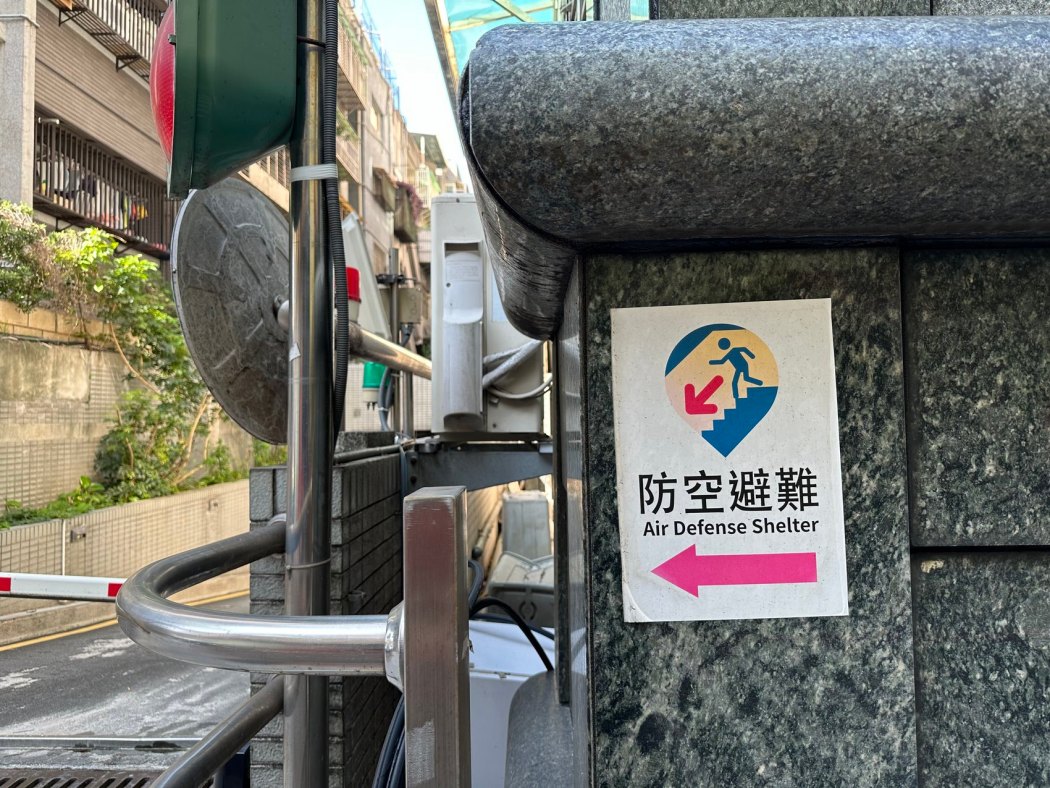
Taiwan has more than 90,000 shelters, but critics say they lack sufficient ventilation, air conditioning and water. This could be dangerous over an extended period. In a notorious episode in the mainland Chinese city of Chongqing, in 1941, tens of thousands of people crowded into a tunnel to escape Japanese bombs. Three hours of bombing by the Japanese led to the deaths by asphyxiation of an estimated 2,500 of them.
During Taiwan’s annual Wanan air-raid drill, the island’s national civil defence exercise, people are supposed to go to the closest shelter. In practice, they often hide on the first floor of the closest building and wait for the sirens to cease.
“This is just a show,” Lin Bin-you tells HKFP in Mandarin, sighing. In his office in a suburb of Taipei, the city councillor collects fake firearms, military equipment, and souvenirs from a trip to Ukraine. The 40-year-old has been passionate about public affairs and modern warfare since the Gulf War.
He’s a member of the ruling Democratic Progressive Party (DPP) but is highly critical of his own camp. “They are unwilling to face the issue of war. They always think that the United States will come to our aid, and that we have a good military. However, they never talk about the civic duty of the people. I find this to be a troubling phenomenon.”
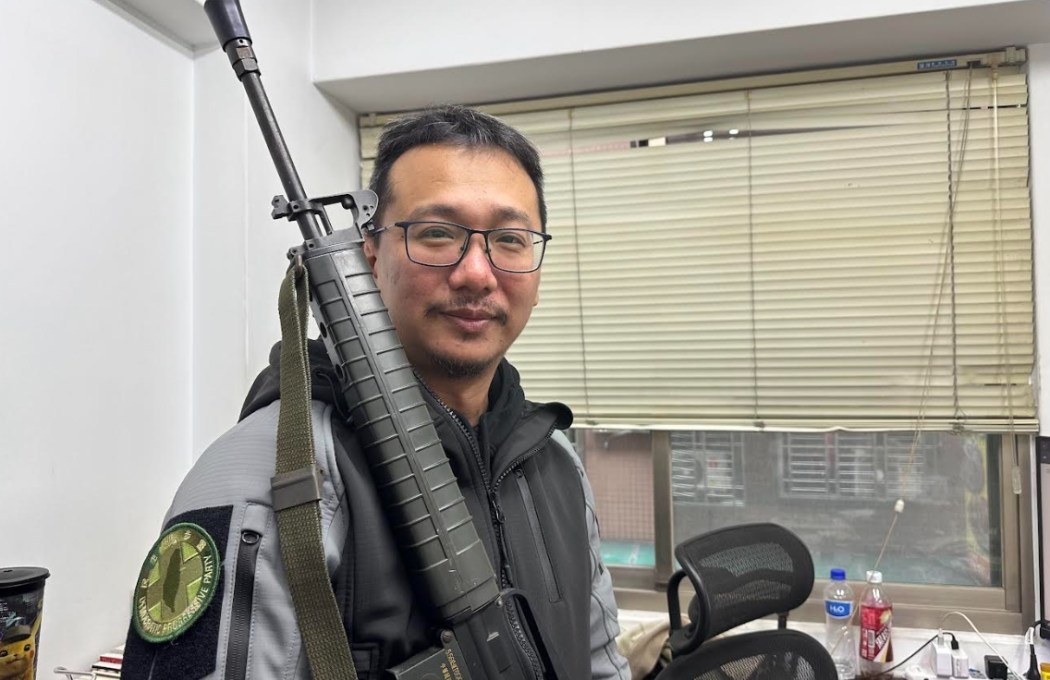
Russia’s full-scale invasion of Ukraine in 2022 prompted local and international media to consider possible scenarios for a Chinese invasion of Taiwan. Lin decided to visit Ukraine to experience first-hand what they might look like.
He went as a civilian but remains the only Taiwanese politician to have visited the country in wartime. “I wanted to see for myself how ordinary people were living in times of war, how they survived. Because this is a situation we might likely face… In a democratic society, if the military is destroyed, will the people continue to resist?”
Since then, Lin has spoken out about the need for Taiwanese to pay more attention to the prospect of war. To him, Taiwan’s situation could be worse than Ukraine’s since it could not maintain supplies of food and other necessities, while Ukraine is self-sufficient.
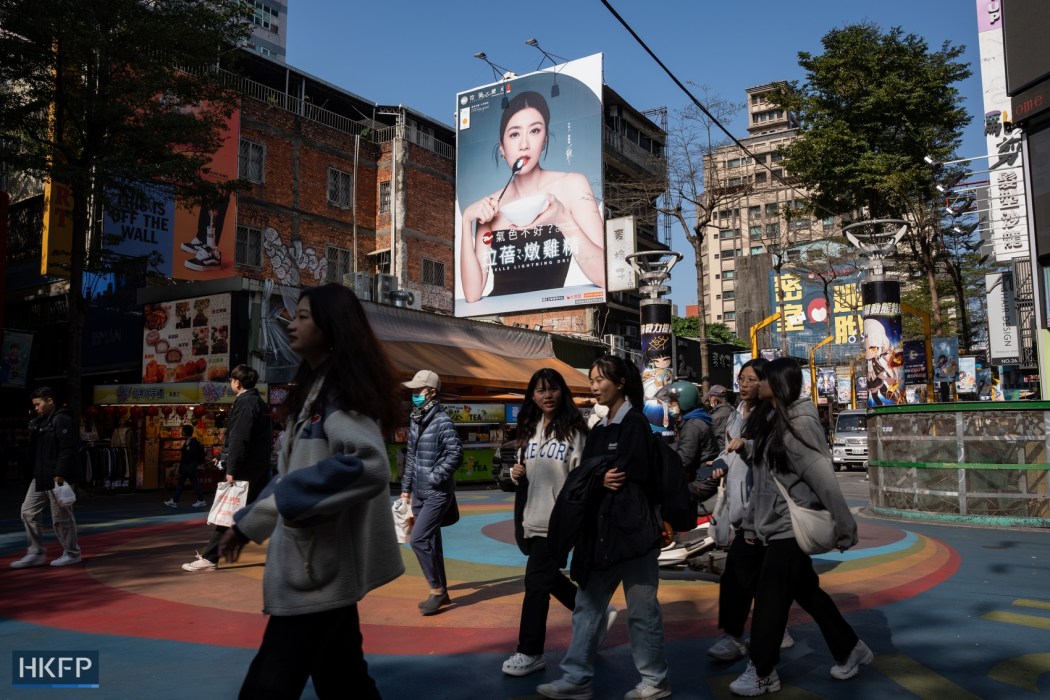
See also: Taiwanese train to survive the unthinkable amid threats of invasion by Beijing
“At least people should know how to protect themselves. Taiwan’s living conditions are better than Ukraine’s. Therefore, if war breaks out, the level of suffering would be higher, and would affect people’s determination to uphold democratic freedoms. […] if Taiwan cannot maintain external trade or understand how war will change our food life, I believe our determination will quickly be destroyed by war.”
Insufficient training
As tensions with Beijing rose in recent years, the DPP increased its defence budget from two per cent of GDP in 2017 to about 2.5 per cent in 2023, and reorganised its reservist system. The mandatory conscription period rose from four months to a year.
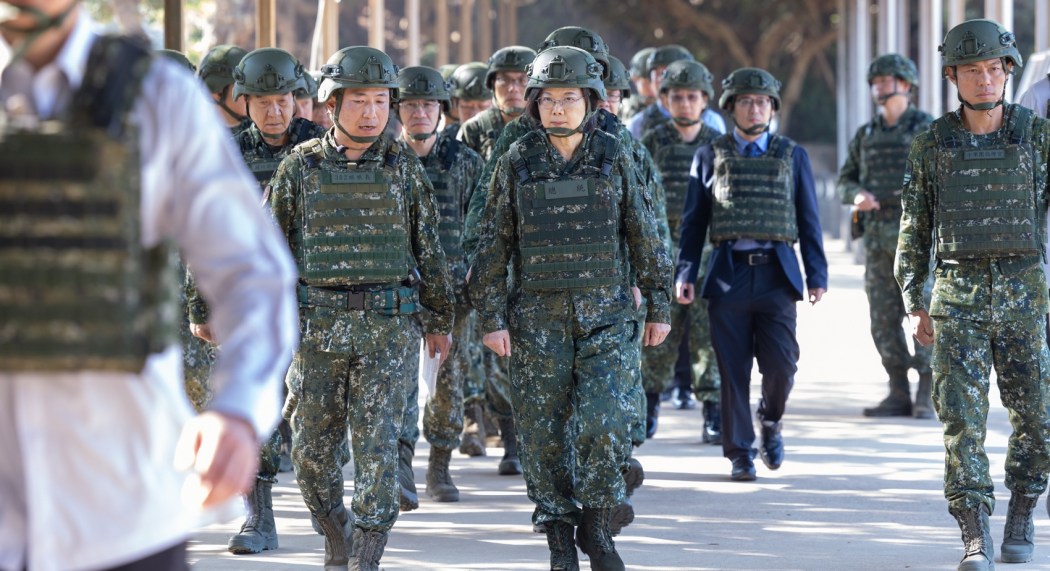
But each reform has attracted controversy, and Taiwanese society fears they could be perceived by Beijing as provocations. The Ministry of National Defense opposed, for example, the idea of a territorial defence force made up of civilian volunteers such as exists in Ukraine.
For decades, Taiwan has faced a military threat from the Communist Party of China. However, apart from compulsory military service for men once they turn 18, ordinary citizens cannot get military training from the government.
The conflict in Ukraine and the Israel-Hamas war have shocked many Taiwanese. In the absence of relevant information and training from the government, they turn to civilian-initiated national defence organisations.
As early as 2007, several retired military officers jointly established the civilian organisation Polar Light, and in recent years, many similar organisations have emerged to provide diverse military knowledge and training, such as Kuma Academy, Forward Alliance, and S.T.A.
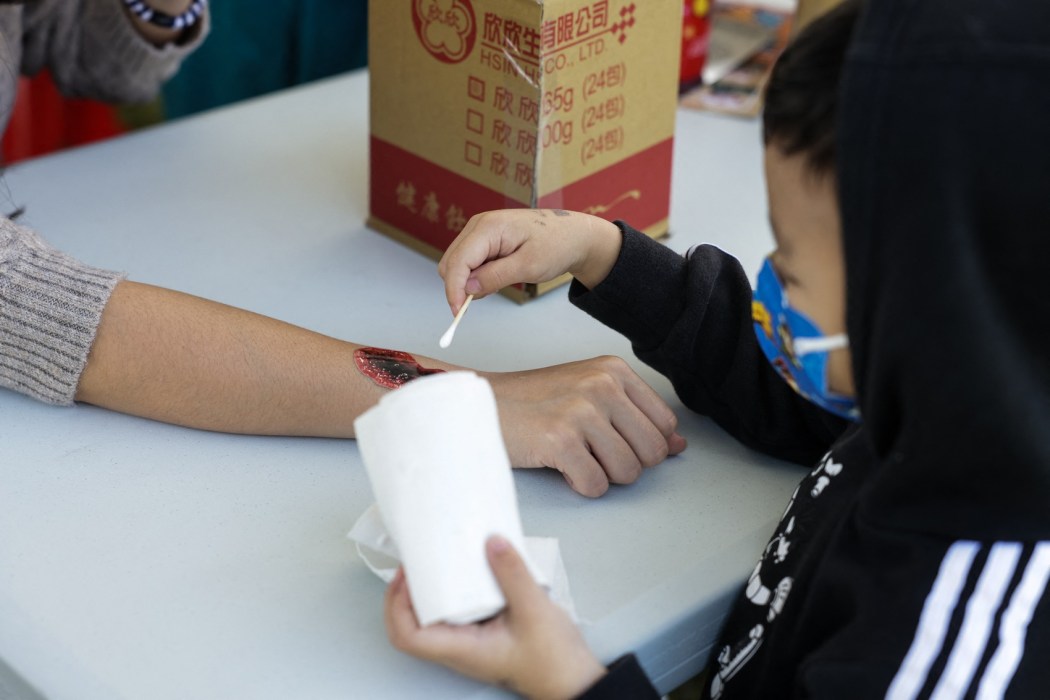
These civilian units mainly offer basic courses in first aid, information recognition, military knowledge, evacuation, and survival. However, there are also courses provided by retired soldiers that offer training closer to military standards. In these courses, ordinary citizens learn to shoot with simulated air guns.
Former chief of the general staff Lee Hsi-min spelt it out in a 2022 interview. “Whether a country can defend itself depends on three factors: strategy, capability, and willpower. Willpower refers to the determination of the people to resist. You need to tell the enemy that many people are willing to go [to the battlefield].”
Currently, China’s People’s Liberation Army has two million active-duty personnel, vastly outnumbering Taiwan’s approximately 155,000. In the face of such a huge disparity, it is uncertain how the Taiwanese government and civilians would respond to open conflict.
On paper, Taiwan has an official civil defence system. The island’s Civil Defense Act was last amended in early 2021 and calls for every sector in society to take part, from schools to public companies, from business owners to district chiefs.
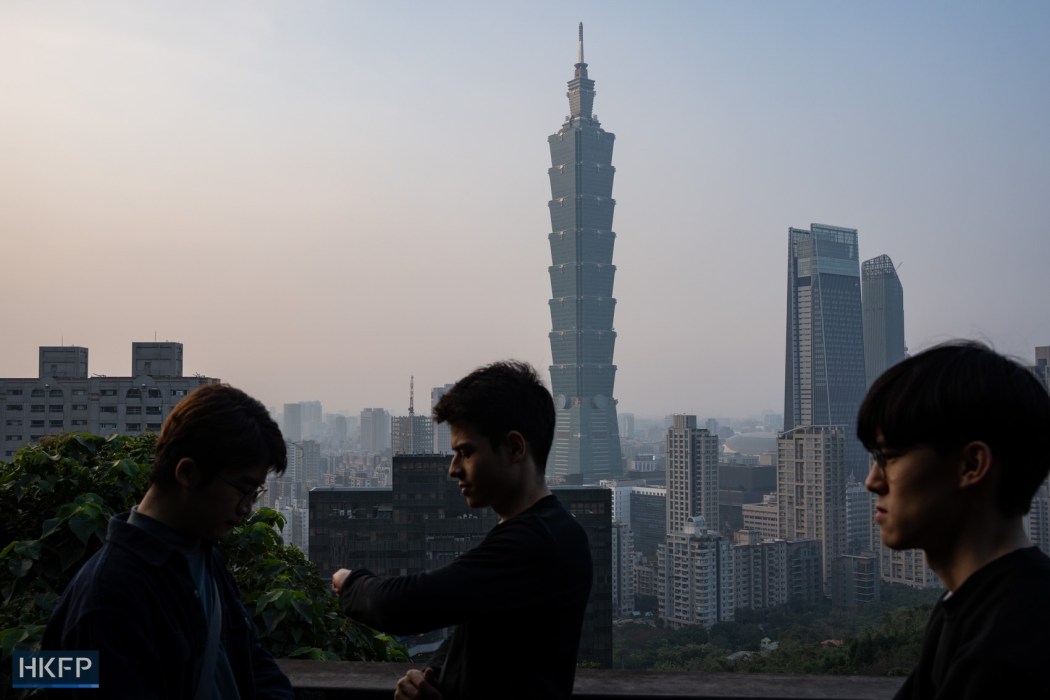
District chiefs, the lowest-level elected government officials, act as an intermediary between the people and the government. They should support the military in times of war and provide help during natural disasters. During an air raid, they should protect their people, assist first responders and maintain order.
Each district chief is responsible for 500 to 50,000 people, depending on the area they oversee, which means the workload can vary greatly. They are all given a budget to organise their defence strategy with some volunteers. But civil defence resources are scarce.
In 2023, the Taipei City Civil Defense and Volunteer Police teams, totalling about 5,000 members, received a combined subsidy of NT$61.8 million (HK$15.4 million). Training expenses were only NT$1.7 million, a mere 2.8 per cent of the total.
“It’s only a few million Taiwanese dollars,” says city councillor Lin. The budget of about NT$1,800 (HK$448) a year per volunteer, he says, only covers uniforms, meals and insurance. For many, there is no room for training.

“The budget for civil defence is not properly used for this matter,” confirms Kuo Shu-cheng, a district chief in a residential area of New Taipei City, close to the mountains of Nangang. He complains the budget is usually used for bonding exercises among volunteers, police and firefighters.
“If war breaks out, I wouldn’t know how to act,” Kuo says. At 31, he is one of the youngest district chiefs and responsible for 6,400 people. With his YouTube channel, which has 2,280 subscribers and notably a video dedicated to civil defence, Kuo is perhaps one of the few district chiefs who takes his responsibility for civil defence seriously.
Something that particularly upsets him is the annual gathering that district chiefs are required to attend. “It’s just basic understanding of civil defence and first-aid training. Sometimes they do actual practice, most of the time they just watch videos. They don’t even have training material, and they use my video on YouTube. It’s ridiculous!”
The young district chief worries that war could break out in the next few years. “Few district chiefs share the same concerns,” he says. “The young generation of district chiefs learn about their responsibilities and find it bizarre that there is not much information on how to fulfil them.”
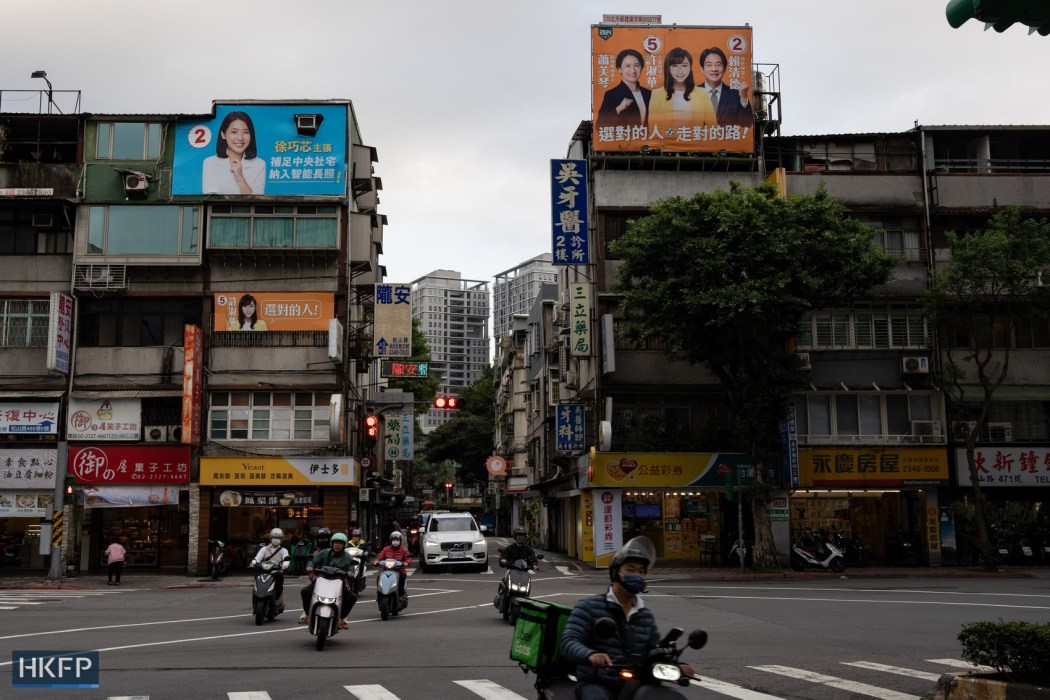
According to a 2018 report, the average age of a district chief is 58, whilst some were as old as 80. “Many of the district chiefs are not in sufficient shape,” says Kuo in his video on civil defence.
It’s more than just a problem of physical and mental capability. Some district chiefs ignore the possibility of war or are simply unaware of their responsibilities regarding civil defence.
“There will be no war,” says Tsai Yin-feng, a district chief in his 70s in Taipei’s Neihu neighbourhood. He has been in charge of a community of 8,000 people for 17 years, but refuses to explain what he would do in case of a conflict with China, arguing that he would receive orders from the government and that war was, in any case, unlikely.
District chiefs like Tsai are typical of a segment of the population that doesn’t believe in the possibility of a war and encourages better communication with China.
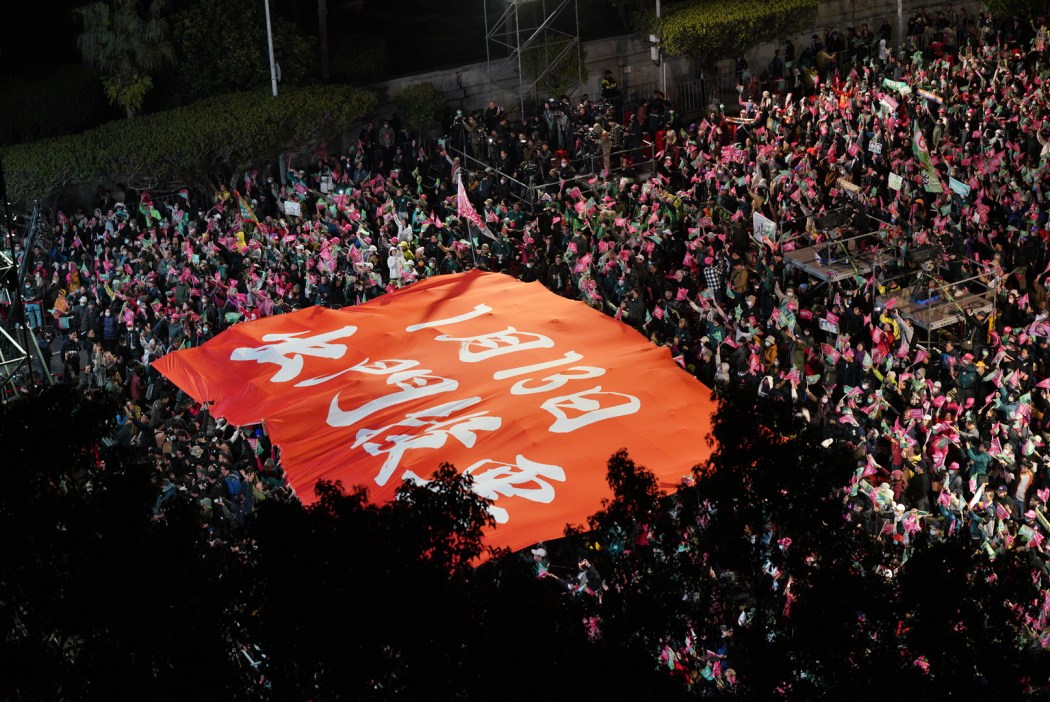
In recent years, foreign media have praised the Taiwanese government for its handling of cross-strait relations and its preparedness for a potential conflict, and the DPP government often boasts about it. But for New Taipei City councillor Lin, this is not enough. “For decades without war, the Ministry of Defense lacks an understanding of the resources needed when war comes,” he says.
In public debate, the subject of a possible war with China is sensitive. For decades, China has threatened Taiwan, but residents have never been targeted directly. This situation has numbed many Taiwanese to the potential danger.
See also: Taiwan unlikely to see ‘full-scale invasion’ by Beijing in next few years, defence expert says
According to a recent survey by Taiwanese magazine Commonwealth, 46 per cent of the 15,000 respondents worry that a war could break out between Taiwan and China in the next five years, while 52.8 per cent do not share this concern. According to both Lin and Kuo, talking about civil defence scares people and does not help politicians get votes.
“It is important to explain to the people why we support a government that values democratic freedom,” says Lin. “We need to involve the people and make them understand that the country belongs to them, not just the president.”
“Don’t avoid talking about war. Our current preparations are not to provoke war but to prepare for it. Only with this mindset can we properly develop a civil defence.”
Support HKFP | Policies & Ethics | Error/typo? | Contact Us | Newsletter | Transparency & Annual Report | Apps
Help safeguard press freedom & keep HKFP free for all readers by supporting our team

Original reporting on HKFP is backed by our monthly contributors.
Almost 1,000 HKFP Patrons made this coverage possible. Each contributes an average of HK$200/month to support our award-winning original reporting, keeping the city’s only independent English-language outlet free-to-access for all. Three reasons to join us:
- 🔎 Transparent & efficient: As a non-profit, we are externally audited each year, publishing our income/outgoings annually, as the city’s most transparent news outlet.
- 🔒 Accurate & accountable: Our reporting is governed by a strict Ethics Code. We are 100% independent, and not answerable to any tycoon, mainland owners or shareholders. Check out our latest Annual Report, and help support press freedom.
- 💰 It’s fast, secure & easy: We accept most payment methods – cancel anytime, and receive a free tote bag and pen if you contribute HK$150/month or more.
MORE Original Reporting
HKFP has an impartial stance, transparent funding, and balanced coverage guided by an Ethics Code and Corrections Policy.
Support press freedom & help us surpass 1,000 monthly Patrons: 100% independent, governed by an ethics code & not-for-profit.




